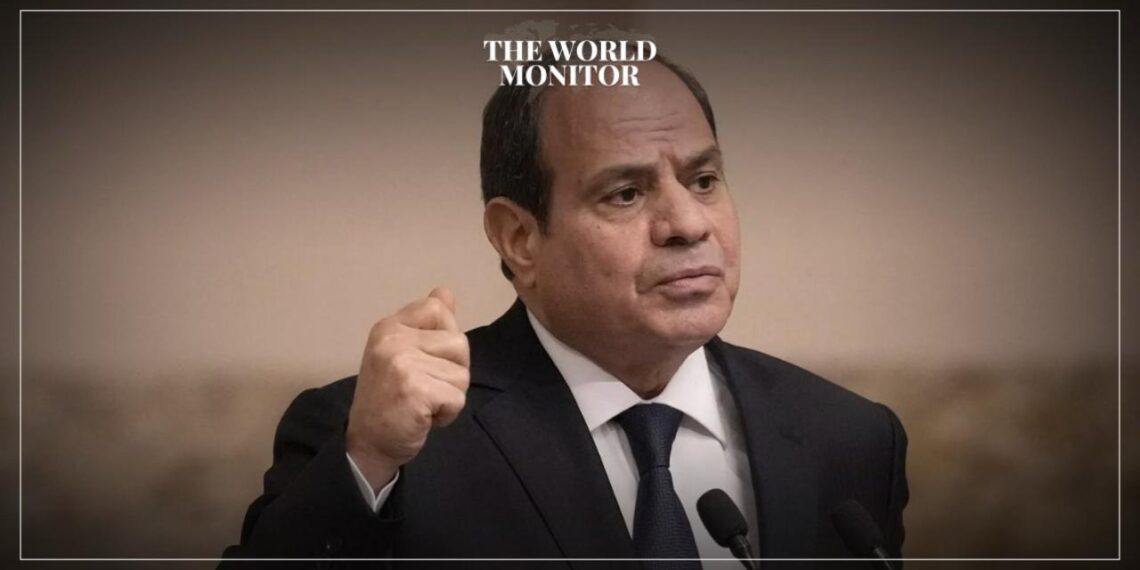Egyptian President Abdel Fattah el-Sisi emphasized on Wednesday the crucial responsibility of the international community in protecting Palestinians from the humanitarian catastrophe they are facing. During a meeting with a delegation from the British House of Commons’ Foreign Affairs Committee, led by Chair Alicia Kearns, Sisi highlighted Egypt’s role in mobilizing and delivering relief aid through the Rafah land crossing and air-dropping supplies to the severely affected areas in northern Gaza.
Sisi underscored that “the humanitarian situation in Gaza cannot endure further delay in reaching decisive solutions to cease fire,” highlighting the dangers of expanding conflict fronts threatening overall regional security and stability. He also referred to the security situations at Bab el-Mandeb and the Red Sea, affirming that a lasting and fair resolution to the Middle East tensions lies in establishing an independent Palestinian state based on international legitimacy resolutions.
The Egyptian military announced last Tuesday that “the Egyptian Air Force carried out an air-drop operation of urgent humanitarian aid in the Gaza Strip, in collaboration with Jordan and the United Arab Emirates.” The ongoing war in Gaza, lasting over four months, has resulted in the death of more than 30,000 Palestinians, mostly children and women, according to the local Health Ministry in the besieged enclave, causing a severe humanitarian crisis with the majority of the population facing the risk of “mass famine,” as per the United Nations.
On the Israeli side, a “Hamas” attack has led to 1,200 deaths, according to the Israeli government, with the group holding about 250 hostages, “130 of whom are still detained in the Gaza Strip, and 31 are believed to have died,” Israel claims. Meanwhile, US President Joe Biden indicated that a ceasefire might be reached by early next week, a statement that Israeli Prime Minister Benjamin Netanyahu found surprising. Mediating countries, including Qatar, Egypt, and the United States, are negotiating a settlement between Israel and the Palestinian “Hamas” movement to reach a truce.
Medical facilities in Gaza are facing catastrophic shortages of supplies and power, exacerbated by a total blockade. Hospitals are operating on the brink, with external generators nearing their last hours of operation. The situation is particularly dire for critical patients, including those with kidney and cancer conditions, and for newborns in incubators. The World Health Organization has documented numerous attacks on healthcare, leading to the deaths of health workers and damage to health facilities. The health sector’s challenges are compounded by years of occupation, leading to a stark scarcity of hospital beds compared to international standards.
The food situation is equally dire, with nearly half a million people unable to access food rations. The ongoing conflict has directly damaged agricultural land and livestock, severely limiting the availability of basic food supplies. The World Food Programme has been working to provide emergency assistance, but the overall food insecurity level in Gaza was already high before the current crisis, with a significant portion of the population relying on international aid.
Drinking water has become scarce, with many people relying on small, solar-powered desalination and purification plants. The lack of electricity has also led to the shutdown of waste-water treatment plants, increasing the risk of waterborne diseases. The situation is so critical that people are resorting to drinking from agricultural wells, raising concerns about the quality and safety of the water.






